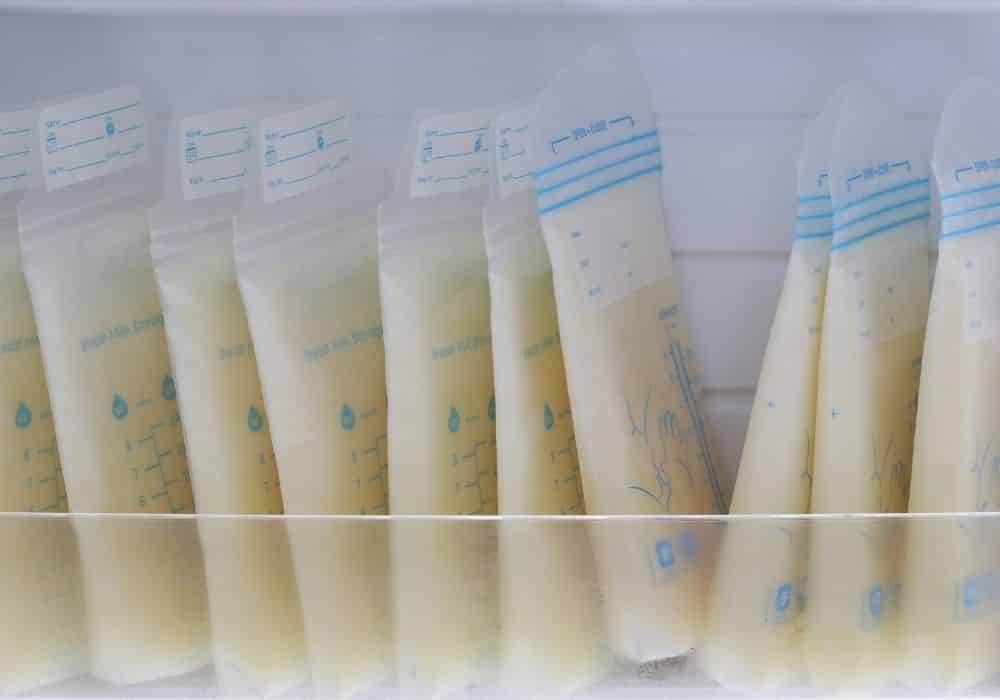Have you ever been in the position where you’ve had to throw out breast milk because you knew that your infant or toddler would never be able to finish it before it expires? Are you an overproducer with more breast milk in your freezer than your little one will ever consume? Would you like to do something wonderful and selfless? Would you like to help the sickest, most frail creatures on the planet? If so, you might be a good candidate to donate your breast milk.
ADVERTISEMENT
Donating human milk is actually an old idea.
There is ancient evidence of wet nurses, women who breastfed other people’s children when the mother for whatever reason was not able to herself. Formula was developed as a nutritional substitute for infants whose mothers were not able to breastfeed. Infant formulas were first seen in the early 1900’s. About the same time human milk banking came into existence. For the first time it was possible to refrigerate, pasteurize, and safely store human milk. The first milk bank was in opened in Boston, MA in 1910.
ADVERTISEMENT
Medical advances have led to an increase in premature infants.
Infants who might not have previously survived now have a fighting chance. With these medical advances comes an increased understanding of the importance of the role human milk plays in providing fragile newborns with optimal nutrition, immunities, and safeguards from necrotizing enterocolitis, a dying off of a section of the premature newborn’s intestines. The mission of most human milk banks around the country is to first and foremost serve these tender, fragile, sick, and preterm infants. Occasionally, when milk supply is in abundance, there are some babies and children who have chronic health issues, but are home and stable who receive donor human milk.
ADVERTISEMENT
So, the basics of milk donation up front is that you have a healthy infant or toddler who is gaining well.
Milk banks do not want to take milk away from a baby who needs it. If your baby is doing well and you have a surplus of milk to share, the next step is to locate a milk bank. Go to www.hmbana.org, The Human Milk Banking Association of North America is the professional organization that provides oversight for human milk banking. Not every state has a milk bank. Don’t let this discourage you. Milk banks ship milk all over the country. They make it as easy for you as they can by setting up milk depots for easy drop off or arranging a shipping company to pick up at your house. They even provide you with shipping supplies and milk storage bags.
Once you’ve located a nearby milk bank.

Contact them and ask about becoming a donor. There will be forms to fill out, a little long but not overwhelming, and some personal questions. Milk banks need to thoroughly vet their donors. They need to ask lifestyle questions to determine if you or your partner are at risk for HIV or Hepatitis. They need to ask questions about travel and military service to make sure that you’re not at risk for Creuzfeldt-Jakob’s disease. They need to know about the medications, supplements, and herbals that you take. Your milk will most likely go to an infant in the NICU. Milk banks need to make sure that nothing you are taking will interact with the medications that the newborn is on. This does not mean that you can’t take any medications. In fact, more medications are accepted now than ever before and this list continues to be refined every few years. So, even if you’ve been rejected in the past because of a medication, you might check again to see if you are now eligible. There are a few deal breakers, i.e., using illegal drugs, having more than two alcoholic beverages a day, tobacco use, and organ/tissue/blood transplant or transfusion in the last four months.
If you pass the screening process the milk bank will give you a green light for serum blood testing. The milk bank works closely with clinical laboratories and can point you in the right direction. In addition, the milk bank will pay for these blood tests which include: HIV, HTLV, Syphilis, Hepatitis B, and Hepatitis C. A form asking for physician attestation as to your health and that of your baby will be faxed to your doctor. This is just to insure that both you and baby are healthy and that milk donation will not put an undo strain on either of you.
ADVERTISEMENT
Once the blood test results are in and provided that they are negative, you will be assigned a donor number. You’ll want to put this donor number on the storage bags and containers that you use to collect your milk. The milk bank will keep track of how much milk you donate. Most milk banks have a minimum requirement of 100 ounces. A lot of money goes into the screening process. In order to offset these expenses the milk bank needs to insure a minimum of milk donation.
The raw, donated milk is collected and then processed at the milk bank. Processing includes pasteurization, portioning, bottling, and laboratory testing for bacterial growth. Pasteurized donor human milk is then sold to NICUs across the country. Unfortunately, milk banks have come under some fire from some well-intentioned, but misinformed individuals. Milk banks, even nonprofit ones, have to charge for their product. Think about the cost that goes into each ounce of milk…office expenses, donor recruitment, donor screening, serological testing, shipping expenses, pasteurization, electricity for commercial freezers, more shipping expenses, not to mention the time and dedication that it too each donor mother to pump the milk! The $4.50/ounce charged for milk barely covers the expenses let alone keeps the lights on.
So, basically, there are four steps to becoming a donor:
1) Locate a milk bank and consent to a phone screening.
2) Fill out an information packet.
3) Have your blood drawn.
4) Get your approval and start donating milk.A word of caution regarding milk banks: Not all milk banks are nonprofit and not all milk banks are what they appear to be. Some women have donated to sites who report to be collecting for a reputable charity only to find out later that their milk was being used by a for-profit organization.
ADVERTISEMENT
This is why it’s important to choose your milk bank from www.hmbana.org site. Donor mothers get a feeling of satisfaction and contentment knowing that their milk is giving a delicate preterm infant a fighting chance at survival. Maybe you’re a candidate, or you know someone who is candidate for milk donation?
ADVERTISEMENT

